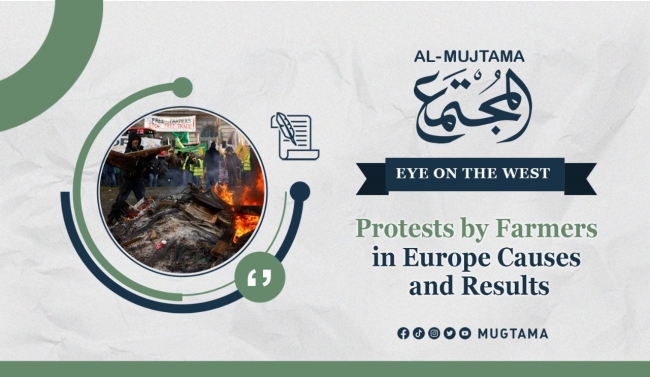Protests by Farmers in Europe Causes and Results
Farmer protests s have erupted as a result of various factors including the implementation of strict agricultural policies, unfair trade practices, and competition from large-scale industrial farming. Farmers are fed up with being overregulated and squeezed financially while multinational companies continue to dominate the market.
They are demanding fairer prices for their products, government support for small-scale agriculture, and a more sustainable approach to farming.
The results have been awe-inspiring as these passionate farmers are making their voices heard loud and clear. They are successfully creating awareness about the challenges they face and pushing for much-needed change in agricultural policies.
By fighting relentlessly, they are ensuring that their concerns reach the highest levels of decision-making and hopefully lead to a revitalization of Europe's farming industry.
Why protest?
- Economic pressures: The costs of energy, fertilizer, and transportation have been going up because of the war in Ukraine and global inflation. This means that farmers are making less money.
- Unfair competition: Farmers feel like they're being undercut by cheaper imports from outside the European Union (EU) and by big retailers within the EU.
- Environmental regulations: Some farmers think that the rules about protecting the environment are too strict and expensive for them to follow.
- Bureaucracy: Many farmers are frustrated with all the paperwork and administrative hurdles they have to deal with.
- Discontent with EU agricultural policy: Some farmers believe that the Common Agricultural Policy, which is a set of rules for farming in the EU, favors big farms and doesn't listen to their concerns.
Where are the Protests Happening?
The protests have been happening all over Europe, but there are a few places where they've been especially active:
- France: Farmers in France are worried about competition, bans on certain pesticides, and too much bureaucracy.
- Germany: In Germany, farmers are protesting because the government is phasing out tax breaks on diesel fuel.
- Netherlands: Farmers in the Netherlands are against plans to reduce nitrogen emissions.
- Poland: Polish farmers are angry about rising costs and unfair competition.
- Other countries: There have also been protests in Italy, Spain, Greece, Romania, Lithuania, and Belgium.
How are Governments Responding?
- The governments in different countries have been responding to the protests in different ways:
- Offering concessions: Some governments, like Greece and France, have given financial aid or changed their policies to address specific concerns.
- Dialogue and negotiation: Many governments are talking to farmers' unions to try and find solutions.
- Limited action: However, some governments haven't made big changes, which has led to the protests continuing.
What Could Happen Next?
It's hard to say what will happen in the end, but a few things could affect the outcome:
- Government response: If governments take farmers' concerns seriously and make changes, it could help resolve the issues.
- Economic and political conditions: The situation could change depending on how the economy and politics develop.
- Farmer mobilization and public support: If farmers continue to protest and gain support from the public, it could put more pressure on the governments to act.
So, that's what's been going on with the farmer protests in Europe. It's a complicated situation, but it's important to understand why people are protesting and what they hope to achieve.


